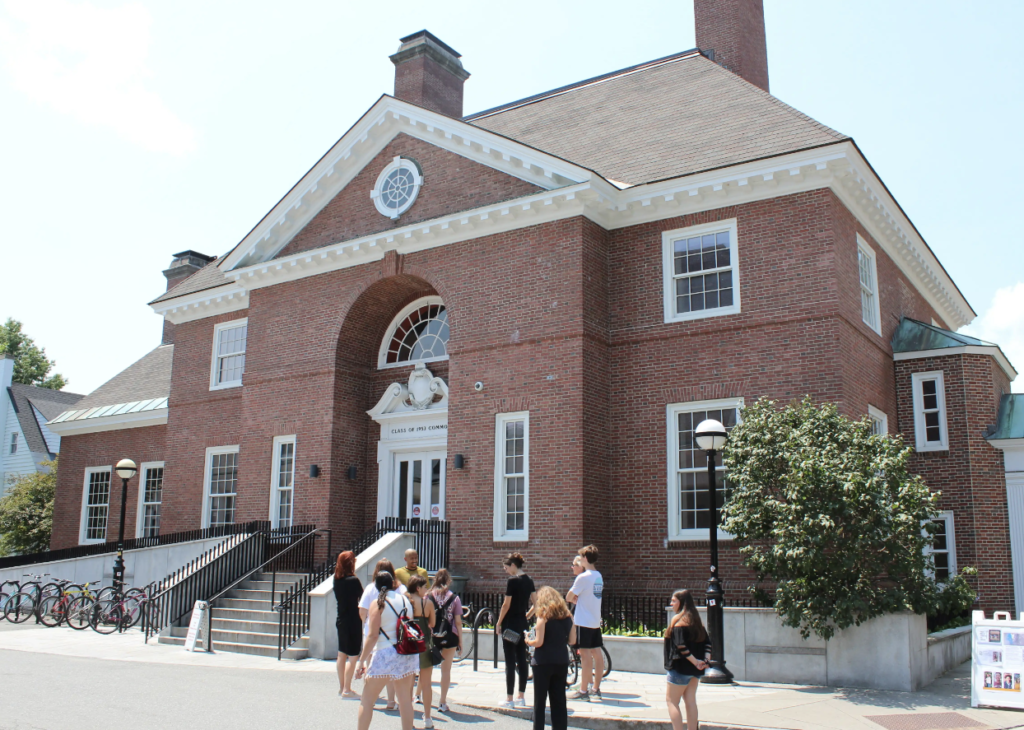
Dartmouth’s administration, in addition to its more recent failings during the COVID lockdown, has for years proven unable to provide students with two of the more fundamental components to civilized life, adequate food and quality housing. The food in particular is an area of embarrassment for the College, for while Dartmouth provides passable housing for most, outside of the occasional bout of black mold or the occasional ceiling collapse, it consistently provides underwhelming nourishment to the entirety of campus. Now though, one of the great administrative boogeyman, John Plodzick, head of Dartmouth Dining Services, has proposed a sweeping array of changes that aim to improve the dining experience for all of Campus.
Currently, the crux of the plan is that the current set of meal plans would be replaced with three plans, all with unlimited meal swipes. The swipe equivalency, the amount of dining dollars that a swipe equals at each dining location other than FOCO, would be increased by a marginal amount, and the non-FOCO dining stations would offer “combo” meals which would consist of an entree, a side, and a drink all for the price of a swipe. Further, Plodzick promises that the accompanying price increase for the three plans would not be more than $150 on top of the current price of the Ivy Unlimited plan, $2,447, and indicated that the plan would allow for the construction of a second dining hall sometime in the future. Other minor changes include the transition of FOCO late night to an all-you-can-eat model and a planned addition of 100 seats to FOCO.
At first glance, some of the promised changes look rather positive. Allowing swipes at all dining locations is a change that the student body has long demanded. As well, the increase in the value of a swipe in terms of DBA should make food other than FOCO slop more affordable, and the all-you-can-eat late-night dining would certainly benefit both overworked Engineering majors and the crowds of drunk freshmen that tend to dominate the dining hall between 10pm and 1am.
However, many of these points merely promise to re-introduce something which DDS itself took away. Just last year, DDS stopped accepting late night meal swipes at the various snack bars around campus, one of the key achievements of the last student body president, David Millman.
Presenting the re-introduction of universal late night swipes as anything but a return to normal is a slap in the face to students. Yet, hidden in the lack of specificity on price increases, on the new meal options, and on the particular differences between the three new plans is the potential for the plans to actually worsen the state of dining for many students.
Firstly, the plans would force all Freshman, Sophomores, and Juniors to purchase an unlimited meal plan. While the new unlimited meal plans may not be significantly more expensive than the current one, they will certainly be more expensive than the current plans that lack an unlimited component. Thus, the proposed changes represent a sharp increase in dining costs for thousands of students who currently use either the 80 or 110-block plan. Further, the “combo meals’ ‘ that will come to make up the menus of the non-foco locations could easily be a way for DDS to restrict dining options to a handful of cheap and mass-produced meal options, much like the current state of foco.
Finally, Plodzick’s plan makes no mention of how the prices of pre-packaged food at Novak, the Courtyard Cafe, and other restaurants will change. DDS may simply increase these prices to compensate for the increased valuations of meal prices. The lack of clarification in Plodzick’s announcement leaves much up to speculation, and given DDS’s history of high prices and underhanded tactics, one need not be a cynic to fear the worst.
Plodzick announced the proposed changes last month, and on April 12th DDS held a conversation of sorts in which Plodzick and other bureaucrats answered student questions about the plan. There is no direct mechanism by which students can approve or even modify the changes, and we must put our faith in the goodwill of DDS that they will take into consideration student feedback.
DSG has publicly voiced opposition to the changes, both because there remain unanswered questions and because they would further restrict students’ dining options. We students must wait and see and hope that the fear of potential backlash will frighten DDS away from taking advantage of their monopoly on on-campus dining.

Be the first to comment on "Let Them Eat FOCO: Dartmouth Dining Services Ushers in a New Era"